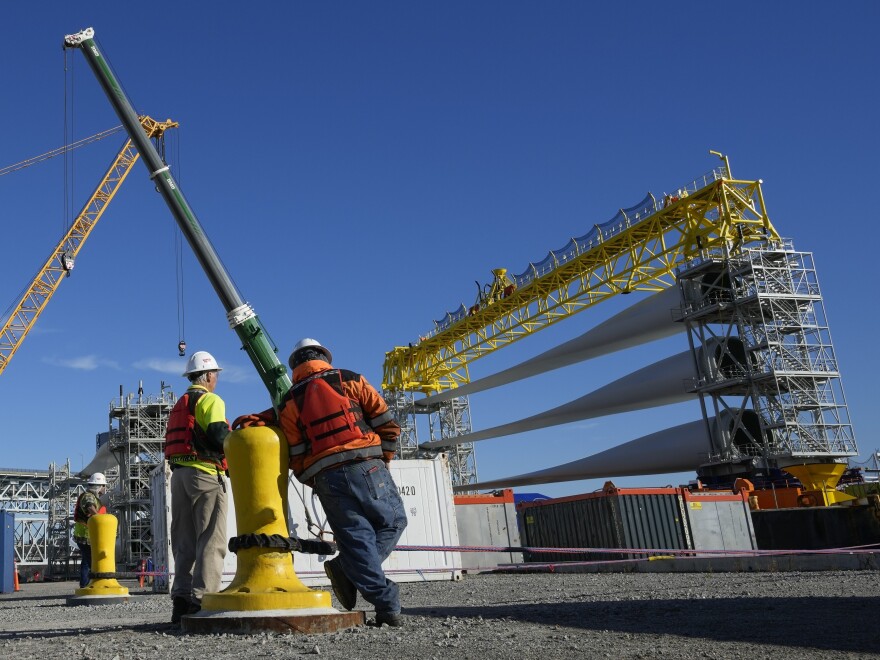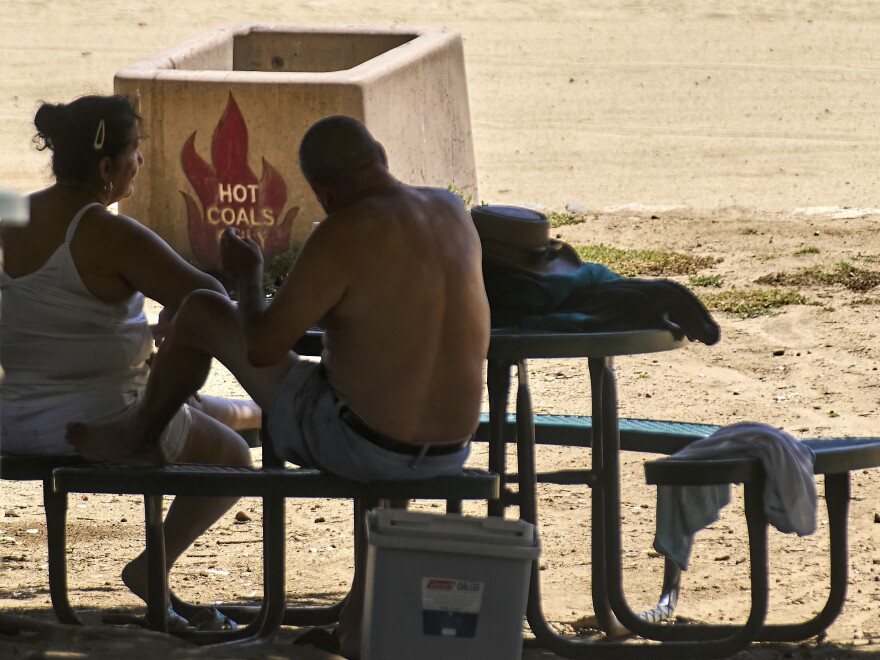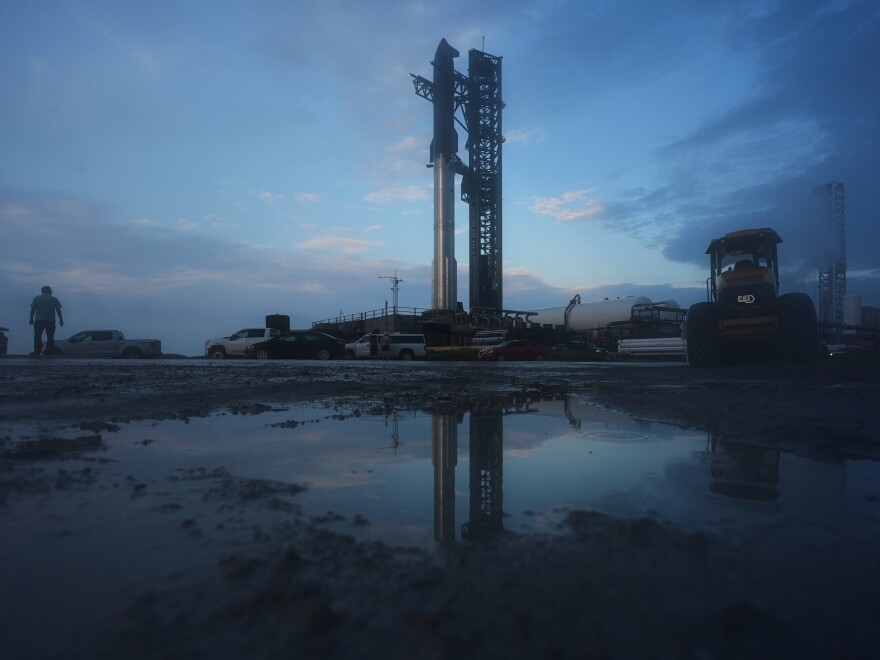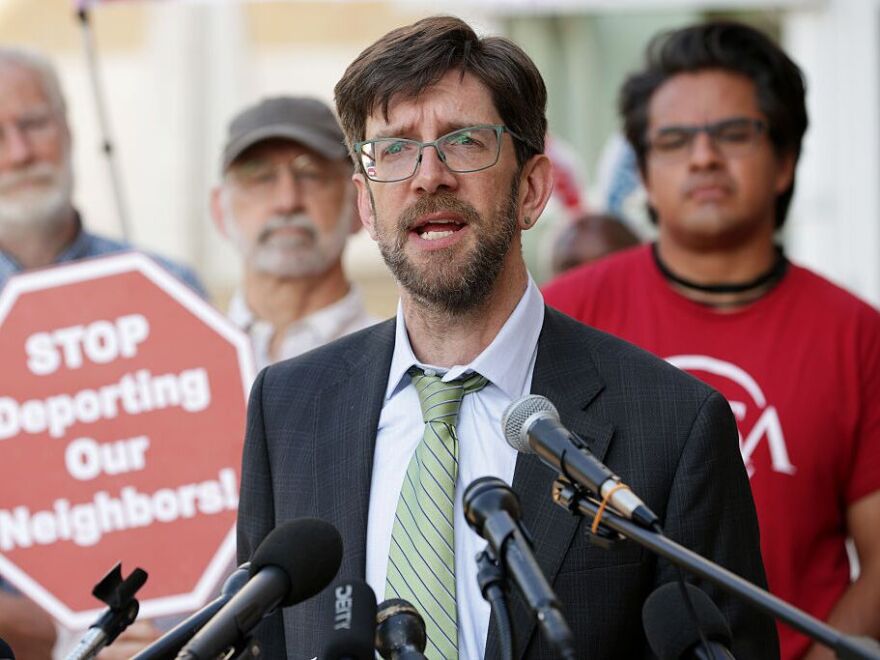Companies have been instructed by the Trump administration to halt the building of a wind farm off the coast of Rhode Island.
In a letter to one of the developers, a Danish company called Rsted, acting director of the Bureau of Ocean Energy Management Matthew Giacona stated that the government was stopping construction on the nearly completed project to “address concerns related to the protection of national security interests of the United States.” Global Infrastructure Partners is also working on the project.
The latest action taken by the Trump administration to target the nation’s renewable energy sector is the decision to halt construction on the Revolution Wind project. A moratorium on new offshore wind project construction was imposed in January by President Trump, a lifelong opponent of the wind sector. New guidelines released by the Internal Revenue Service recently makes it more difficult for businesses constructing solar and wind projects to be eligible for federal tax incentives. Additionally, the Commerce Department is looking into whether importing wind turbines and their parts poses a national security risk.
It is “evaluating all options to resolve the matter expeditiously,” including legal action, according to a statement released by Rsted.
Fifteen miles south of Rhode Island, Revolution Wind is situated in federal waters. The project is expected to start providing electricity to households and businesses in Rhode Island and Connecticut next year, with construction having begun in 2023.
“Any pause or uncertainty at this stage could ripple across jobs, contracts, and communities already benefiting from the project,” read a statement from Erik Milito, president of the National Ocean Industries Association, a trade association that includes oil and gas companies and developers of wind projects.
“Today, the U.S. has only one fully operational large-scale offshore wind project producing power,” stated Milito. “That is insufficient to fulfill the growing energy demands of America. All forms of energy, including wind, oil and gas, and new and developing technologies, are needed more.
Messages requesting response from the Bureau of Ocean Energy Management were not answered.
According to industry analysts, restricting the growth of renewable energy in the face of growing demand for electricity could result in higher power costs nationwide.
“This is not the first time extreme partisan politics has derailed sound energy policy,” said Jason Grumet, CEO of the industry group American Clean Power, in a statement in response to Revolution Wind’s stop-work order from the Trump administration. “The unfortunate message to investors is clear: the U.S. is no longer a reliable place for long-term energy investments.”
Work on an offshore wind farm close to the Long Island coast was halted by the Interior Department in April. At the time, Cabinet Secretary Doug Burgum wrote to the Bureau of Ocean Energy Management saying the Empire Wind project’s approval “was rushed through by the prior administration without sufficient analysis.”
When the Trump administration removed the stop-work order in May, construction on Empire Wind resumed. However, the project’s creator, Equinor, a Norwegian business, paid a high price for the inconvenience. Torgrim Reitan, Equinor’s chief financial officer, stated during an earnings call in July that the company recently reduced the value of its investment by nearly $1 billion, primarily due to “the changes in regulations for future offshore wind projects in the U.S.”
Liz Burdock, the CEO of the Oceantic Network, an offshore wind advocacy group, said in a statement regarding the Revolution Wind project, “This is the second time the Trump Administration has taken unlawful action against a fully permitted offshore wind project under active construction, this time one that is nearly 80% complete.”
“This dramatic action further erodes investor confidence in the U.S. market across all industries and undermines progress on shared national priorities shipyard revitalization, steel and port investments, and energy dominance,” Burdock stated. “In fact, halting work on Revolution Wind will drive up energy costs for consumers, idle Gulf Coast vessel operators that have invested hundreds of millions of dollars in new or retrofitted vessels, and jeopardize the livelihoods of union workers.”
Copyright 2025 NPR






